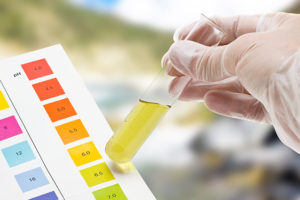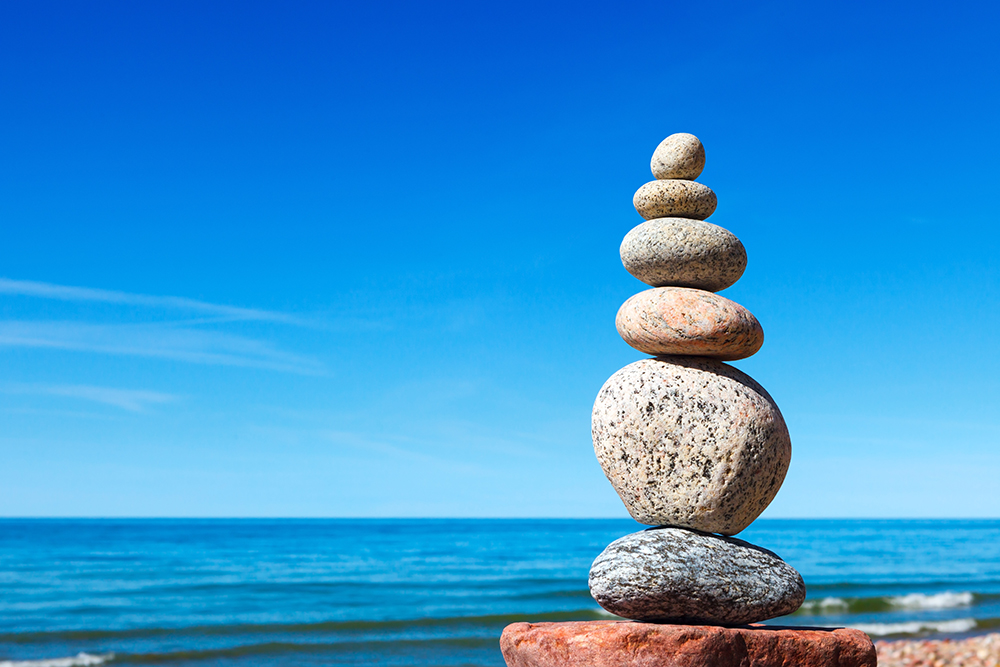Maintaining your pool water levels with the proper chemical balance is more than just comfort. It’s also a matter of less cost to operate. Even if one chemical out of the panel is off, the potential for itchy skin comes into play. We’ve talked a lot about balancing your pool in our prior blogs. What does “balancing your pool” really mean? In this blog, we’re going to discuss maintaining the correct pool water balance.
Chemical Compounds In Harmony
When chemical levels are balanced, it means each chemical present in your pool water’s composition are within the safe and effective ranges—the goldilocks zones. Levels that are too high will create a problem and ruin the efficacy. Water with high levels can turn cloudy and leave deposits on the side of your pool. Too much chlorine will irritate your eyes. Not enough chlorine in your pool will create a breeding ground for algae, bacteria, and even recreational water illnesses (RWI’s).
Start With The pH Balance
How do you know what the right levels are to start? Start with the pH levels. Pool water should remain between 7.4 and 7.6 on the pH scale (1 is densely acidic, while 14 is complete alkalinity). Completely neutral is a 7 on the scale. Be sure you keep your pool slightly higher than neutral. pH levels less than 7 will easily make the water too acidic. Higher than 7.6 and will be too alkaline, or basic. Both of these extremes can cause bodily irritation—meaning your pool is not clean enough to enjoy. At 7.8, your chlorine would be only half as effective as it could be.
What affects the pH balance of your water? One of the biggest contributors to water balance is total alkalinity (TA for short). This measures the alkaline substances found in your water. The right levels of alkalinity will help to keep your pH levels stabilized. When your total alkalinity is too low, your pH levels can be very erratic, meaning difficulty in keeping your water at a comfortable state.
What level should your total alkalinity be? For most pools, TA levels should be between 80 and 120 parts per million (ppm). If you find your pH levels to be off, do not add a base or acid to your water until you have tested your total alkalinity to see if it needs to be adjusted.
Chemical Specifics
Water hardness is another aspect of pool balance you should regularly test. How hard your water is depends mainly on where you live as well as your pool water’s source. We’ve all seen what hard water looks like from a dishwasher: dishes and plastic cups have specks of white imprinted on it. The white film is a sign of high calcium levels. In a pool, calcium can produce a cloudy water effect. Ideally, you’ll want your calcium hardness to be less than 400 ppm (safely in between 180 and 220 ppm). Free chlorine is also a factor in your pool’s balance. In most pools, you want your free chlorine levels to be at least 1 ppm.
 Frequency And Types Of Testing
Frequency And Types Of Testing
For minimum usage, we recommend testing your pool water once a week. More frequent use means a higher chance for improper pool balance, which means more testing. Here’s a quick breakdown for the average pool owner:
- Chlorine — test once a week for minimum pool usage (2-3 times for higher usage)
- pH — test at the same time as your chlorine. Both these work together so be sure to test them together, for example: if your chlorine is too high, you’ll probably need to adjust your pH levels or vice versa.
- Alkalinity — test once a month, along with checking your water’s hardness. Every pool’s water hardness will be different based on your local water and its level of calcium. Some areas will have harder water, which will require more frequent testing. Other areas will have softer water, which will require less testing.
- Total Dissolved Solids — test at the same time as alkalinity. This will give you effective levels for your dust, pollen, waste, and chemical reactions.
Other Factors Related To Frequency
- How often you use your pool
- How many people use it in addition
- Opening your pool for the season – test everything upon uncovering your pool for the spring and summer months.
Erik’s Aquatic Care is always here to answer questions you may have as a current or future pool owner. Cheers!

